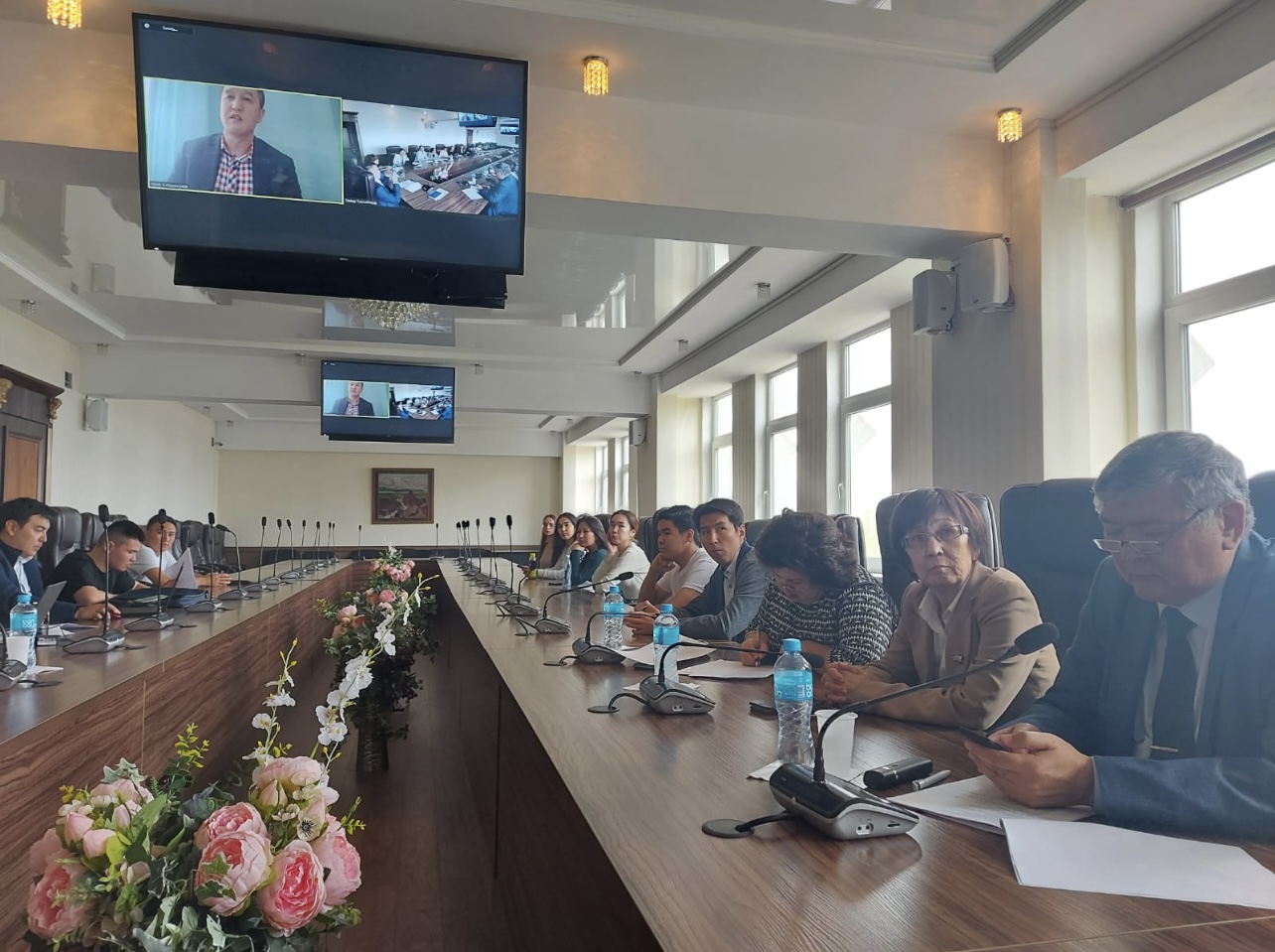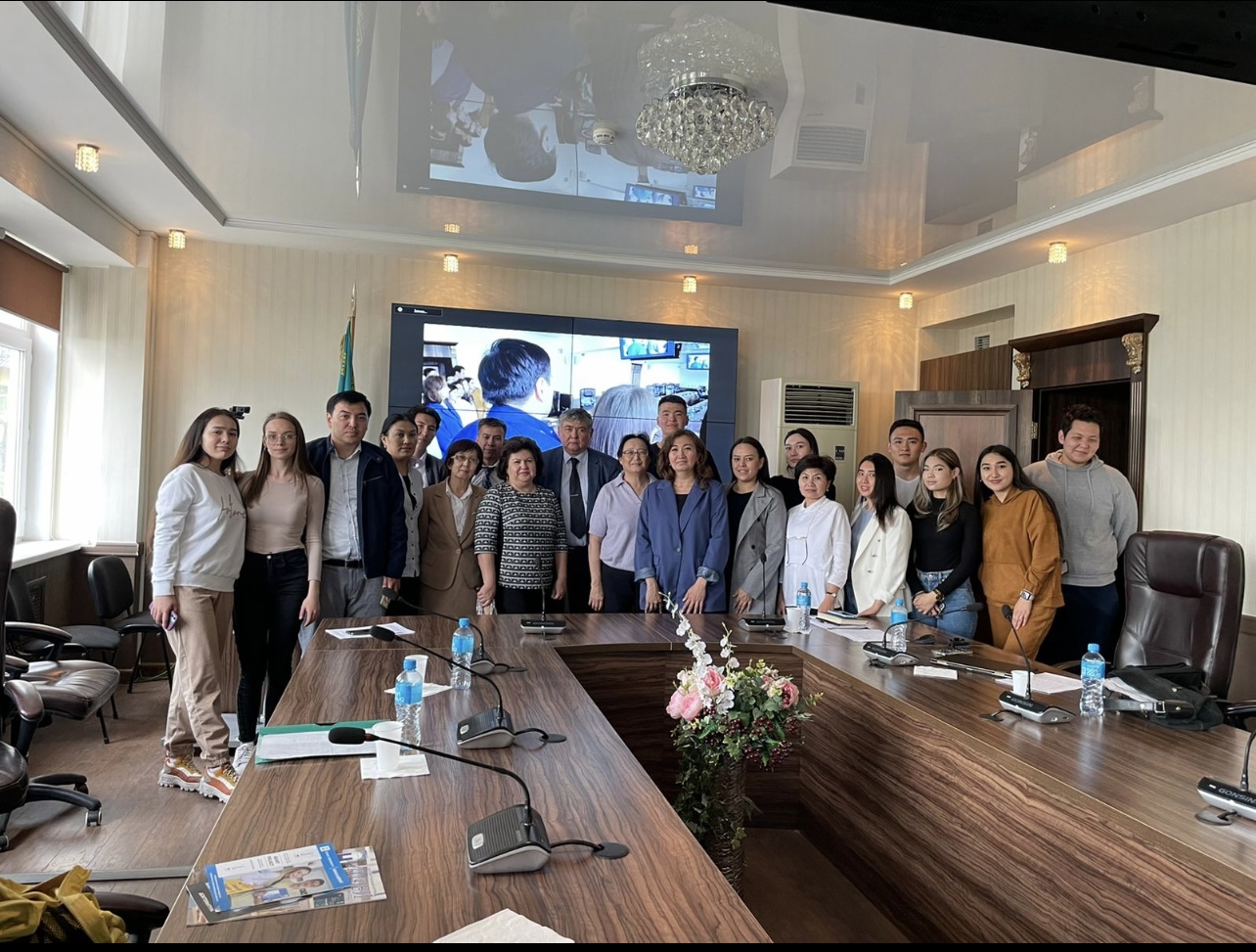POST RELEASE Breakout session – “Actual problems of legislation and law enforcement practice within the framework of the main directions of development of national legislation in the Concept of the legal policy of the Republic of Kazakhstan until 2030 and the Message of the President of the Republic of Kazakhstan to the people of Kazakhstan dated March 16, 2022” April 13, 2022
On April 13, 2022, a sectional session was held at Turan University – a round table “Actual problems of legislation and law enforcement practice within the framework of the main directions of development of national legislation in the Concept of the legal policy of the Republic of Kazakhstan until 2030 and the Message of the President of the Republic of Kazakhstan to the people of Kazakhstan dated March 16, 2022 .”.
The organizers of the round table within the framework of TURAN SCIENCE FORUM “Integration of Education, Science and Business: Innovations and Development Vectors” are the Research Institute of Law and the Department of Jurisprudence and International Law.
The round table discussed topical issues of legislation and law enforcement practice within the framework of the main directions for the development of national legislation in the Concept of the legal policy of the Republic of Kazakhstan until 2030 and the Message of the President of the Republic of Kazakhstan to the people of Kazakhstan dated March 16, 2022.
A few words about the program of the event:
The round table was attended by leading legal scholars, state and public figures, university professors, undergraduates and doctoral students.
Director of the Research Institute “Law”, Doctor of Law, Professor Talgat Kurmanovich Akimzhanov voiced a proposal to generalize the five-year practice of introducing criminal offenses into the sphere of criminal law and then make an informed decision. In particular, the old classical structure of the construction of the Criminal Code of the Republic of Kazakhstan in 1997, that is, to abandon the concept of a criminal offense (criminal offense, crime) and return only to a crime. This will significantly relieve the criminal legislation of the Republic of Kazakhstan from minor acts that do not have a public danger, which include criminal offenses or transfer them to the category of crimes of minor gravity, and, thereby, return the exclusivity to the sphere of criminal legal relations, which should occur only in exceptional cases. or continue the development of a two-tier system of criminal acts, that is, criminal offenses (crime, criminal offense) by bringing the current criminal legislation of the Republic of Kazakhstan into line with it: for example, when changing the name of Art. 11 of the Criminal Code of the Republic of Kazakhstan “Categories of crimes” in the “Categories of criminal offenses”, as this is more consistent with the two-tier structure of criminal acts; and etc.
Adviser to the rector of the Eurasian Law Academy named after D. Kunaev, Doctor of Law, Erkin Ermanovich Duysenov also noted that over the past three decades, Kazakhstan has come a long way of reforms aimed at building a market economy. The reform processes also affected other spheres of life, including the legal one. Sometimes it seems that reforms are a whim of civil servants, but this is a fairly common world practice, when laws change with the times.
Professor of the Kazakh Institute of International Relations and World Languages, Doctor of Law Professor Eduard Bulatovich Mukhamedzhanov – believes that it is necessary to reconsider a number of issues related to lowering the threshold for political parties to enter the Mazhilis of the Parliament from 7% to 5%, adding the column “against all” to the ballot papers and introducing direct elections of grassroots akims. Of course, each of these innovations requires careful study and legal analysis.
The round table participants reviewed and discussed the January events in Kazakhstan, the interaction of civil society institutions with the population, the main problems and prospects for the development of constitutional legislation, as well as the messages of the President of the Republic of Kazakhstan to the people of Kazakhstan dated March 16, 2022. within the framework of which some topical issues and contradictions were discussed.



